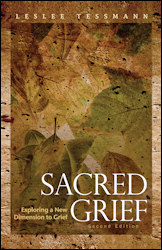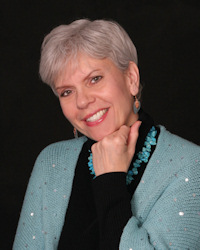Grief
The Power of Language: Grief as a Relationship
Guest Blogger: Leslee Tessmann
Because we are human beings who have language, we actually have a relationship to everything and everyone. Our words give us our experience of the people, places and things around us because they form our opinions, thoughts and assessments. Those thoughts and assessments create the reference point from which we relate to anything and everyone and we begin to live from an almost automatic thinking process based on our opinions of what we like and don’t like. For example, consider the word ‘bug.’ For some human beings, a bug is another life form and fascinating to watch and observe (especially to small children!) so their relationship to bugs is based on intrigue and curiosity. Yet for others, bugs can be frightening or at the very least inconvenient to remove from one’s home so the relationship to bugs would be sourced from fear rather than from curiosity. Same word or object, yet two very different relationships and experiences
Now, let’s apply the same theory to grief. For many people, particularly in the Western world, the word ‘grief’ brings to mind pain and lots of uncomfortable, to say the least, physical sensations and emotions. Again, because we have language we have opinions about which emotions and physical sensations we would rather feel. We usually want the ‘good’ kind of emotions like happiness and joy, so our relationship to grief is sourced from a preference not to feel pain, sadness, anger, or all the emotions that arise when one grieves. When they do arise, we actually end up adding to our suffering by resisting the experience of our grief. However, in some countries—particularly in Eastern cultures—the word grief evokes something completely different. Instead, it symbolizes an energy that heals, honors what’s happening in the present moment, and opens one’s heart to an experience that includes love and joy as much as pain and suffering. Same word or experience, yet two different relationships and experiences.
The key point to what I’ve just described is that because we have language, we can create whatever kind of relationship we want to anything, anyone, at anytime—including grief. So, if we use words such as “sacred,’ ‘friend,’ or ‘trusted friend,’ our experience of grief and its healing process becomes completely altered. The gift of making a conscious choice about how we are going to relate to our grief is the expansion and opening up of our hearts and lives to life. We take a magnificent leap of faith into the unknown of a new relationship to healing. Are you ready to take that kind of leap of faith? If not, what’s holding you back from trusting yourself and life?
About the Author
 As her story in Sacred Grief describes, a series of challenging circumstances eventually propelled her into a time of self-discovery. The recognition of her alcoholism and ensuring sobriety in 1994 pushed her into her first conscious experience of working with deep, unresolved grief. She became active in Al-Anon and Alcoholics Anonymous (AA) and eventually shared about her recovery at treatment centers, colleges, and
As her story in Sacred Grief describes, a series of challenging circumstances eventually propelled her into a time of self-discovery. The recognition of her alcoholism and ensuring sobriety in 1994 pushed her into her first conscious experience of working with deep, unresolved grief. She became active in Al-Anon and Alcoholics Anonymous (AA) and eventually shared about her recovery at treatment centers, colleges, and
Al-Anon and AA meetings and retreats. Her authentic, straight-forward expression of life before and after recovery was appreciated and acknowledged by audiences. Over time she went on to create and facilitate classes that dealt with working with life on life’s terms, a large part of what Sacred Grief is all about.





